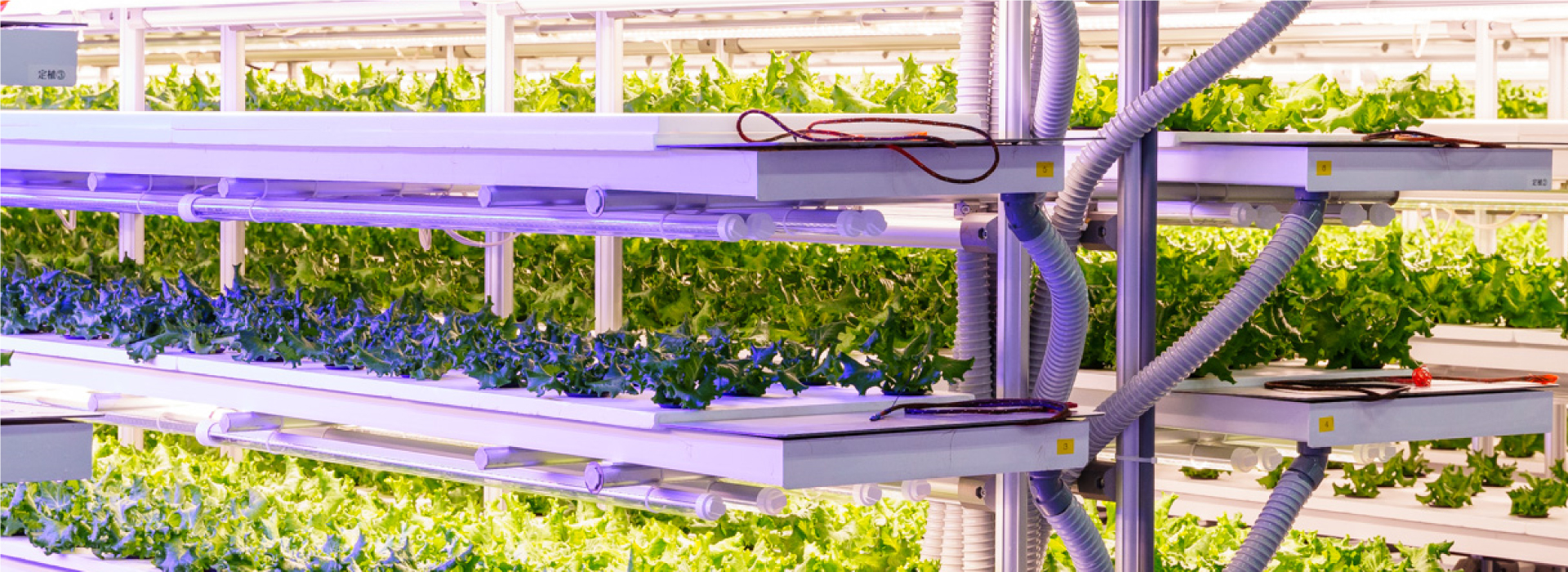Greeting

Keihanna Vegetable Co., Ltd.
Representative Director
Yushihisa Ike
According to the opinion of global ecologists, food supply through agriculture, fisheries, livestock, etc. in the natural environment of the earth is limited to about 5 to 6 billion people. At present, the world's population has reached 7.5 billion people, and has already exceeded the functions of the global environment itself. Under these circumstances, the industrialization of agriculture is inevitable. Plant factories are one means of industrializing food production, and are certainly a necessary business for the future of the world.
The quality of conventional plant factory vegetables was lower than that of outdoor vegetables. This was due to the fact that the technology of open-field hydroponic cultivation was used almost as it was for the production of plant factories, and the marketing of the quality and taste of vegetables from the consumer's perspective was not paid attention to. In addition, we believe that the reason is that the development of the necessary engineering technology has not progressed.
Career
Graduated from Waseda University, Faculty of Science and Engineering, Department of Architecture in 1998. First-class architect Founded after gaining practical experience in small, medium, and large-scale plant factories at a foreign-affiliated consulting firm and a plant factory business company.
Company
| Company | Keihanna kenkoyasai Co., Ltd. |
| Main office | 15-6 Jyotsukaiden, Ueno-cho, Muko-shi, kyoto-fu Research and development base, Kyoto Prefectural University Seika Campus Representative Director Yushihisa Ike First-class architect (No. 343778) Business license, Construction Business, Machinery and Equipment Installation Business No. 41795 |
| TEL | 075-275-0249 |
| Capital | 20 million yen |
| Established | October 2015 (individually founded October 2012) |
| Projects | Cultivation research and development of high-quality healthy vegetables with high antioxidant value and deliciousness Plant factory Development, design, manufacture and sale of cultivation plants |
Media
| September 26, 2016 | Kyoto Shimbun morning edition |
| November 9, 2017 | Nihon Keizai Shimbun morning edition |
| December 15, 2017 | Yomiuri TV "Kansai information net ten" |
| March 6, 2018 | TV Osaka evening news |
| January 29, 2018 | NHK Kyoto area "Kyoichi Nichi News 630" Later Kansai area "News Hot Kansai" National area "Good morning Japan" |
| April 18, 2018 | Broadcast worldwide on NHK WORLD JAPAN |
Speaking Engagements
| June 2017 | Deloitte Touche Tohmatsu Venture Support Morning Meet UP Osaka Innovation Hub 75th "Agriculture" |
| November 2017 | National Research and Development Agency New Energy and Industrial Technology Development Organization NEDO Pitch MUZA Kawasaki Central Tower 21st "Agrifood" |
| February 2018 | Tokyo Sangyo 21 Kick Kyoto Next-Generation Manufacturing Industry Employment Creation Project Keihanna Open Innovation Center (KICK) |





